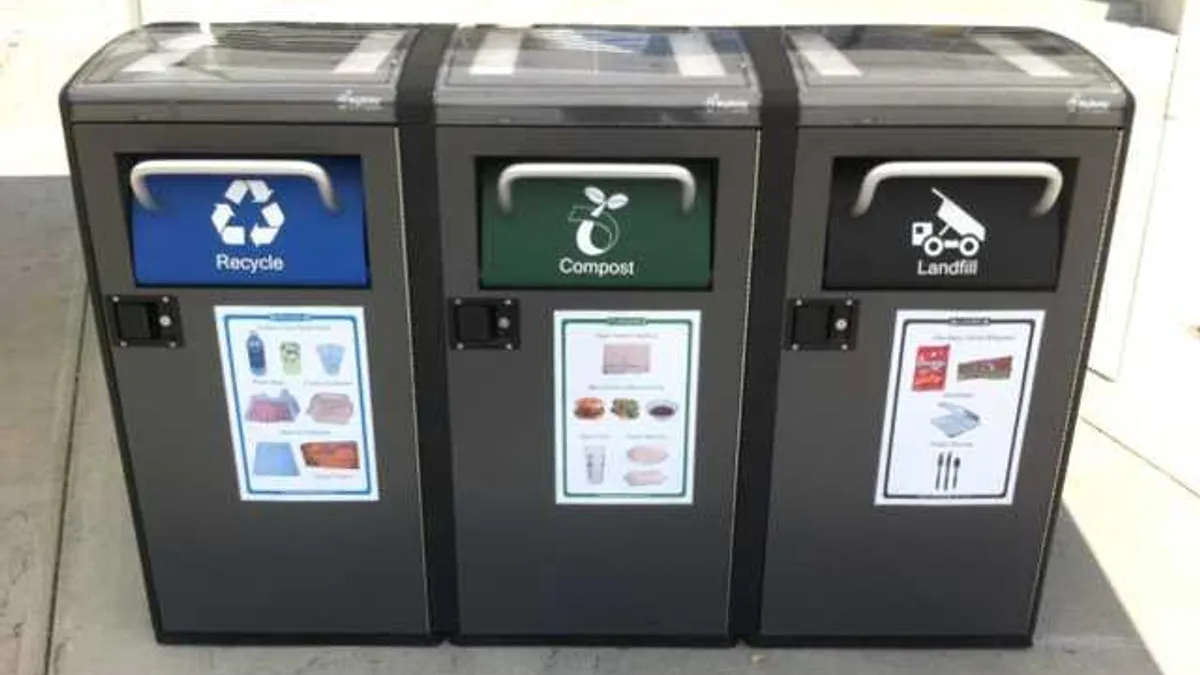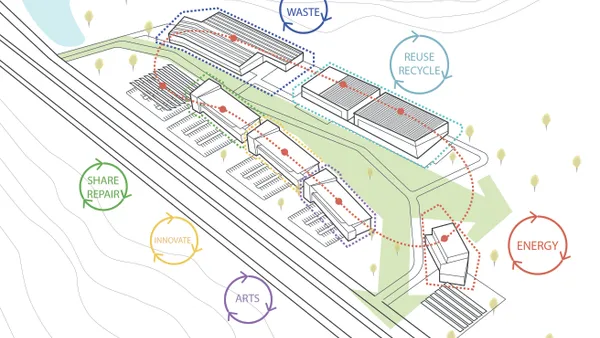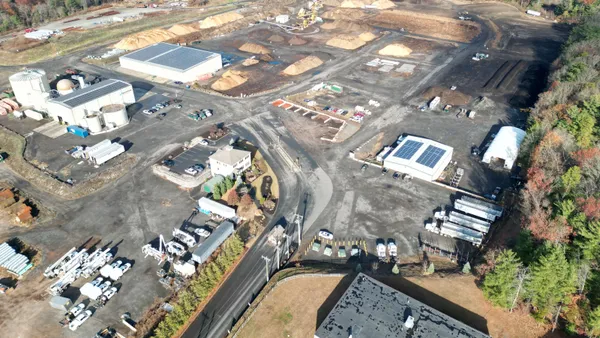UPDATE: Despite earlier concerns from the controller, the City of Philadelphia has signed a new deal with Bigbelly Solar, as reported by Waste360. Officials at both Bigbelly and the Philadelphia Streets Department disagree with the controller's findings, and the city now plans to purchase 275 new Bigbelly units. An agreement with the company will put the units on a regular inspection and cleaning schedule.
Instead of spending more city money on the new units, Philadelphia gave advertising rights to Bigbelly. Philadelphia, per the agreement, is responsible for emptying the cans and will get 5% of the ad revenue.
Dive Brief:
- Philadelphia received "no valid cost savings" from a $6.5 million investment in Bigbelly Solar trash cans, purchased in 2009, according to a press release from Philadelphia Controller Alan Butkovitz.
- An audit from the Philadelphia Streets Department indicated that the software — with an annual cost of $130,000 — has experienced a "significant" outage since January, leaving up to 82% of the units unable to communicate. The controller added that the city "wasted" the opportunity that Bigbelly units presented by not properly monitoring the trash cans.
- The audit included dozens of photos of Bigbelly units that had missing or broken handles or significant cracks. The audit said that because the units weren't communicating with the software, the city was unable to properly maintain or service the units. Bigbelly has not yet responded to a request for comment.
Dive Insight:
Many urban — and suburban — areas have reported financial savings and cleaner streets since Bigbelly units were purchased and installed on their respective streets. Bigbelly units collected over 100 million gallons of waste in 2016, demonstrating widespread and successful implementation of the systems. While there are competitors like SmartBin, Bigbelly has the largest market share of "smart" consumer waste collection units.
Philadelphia, at the end of 2016, created a "zero waste cabinet" with a goal of getting the city to zero waste by 2035. Since then, the city has used GIS technology to survey litter and members of the city council have shown an increased interest in how waste and illegal dumping impact quality of life in the city. It makes sense that the city would invest so much money in Bigbelly units to maintain these clean efforts — but the findings from the controller's office are troubling.
The controller said that the Streets Department hasn't conducted a cost benefit analysis or created a "viable" work order and maintenance tracking system for repairs on units. With hundreds of millions of gallons of waste to collect and other cities reporting success — or, at least, not experiencing failures — with Bigbelly or similar units, Philadelphia's audit is an outlier. The trouble may indicate that Philadelphia and other cities need training on using more high-tech waste management equipment, which will be a trend as smart city development makes for the opportunity to implement connected and complex devices citywide.












